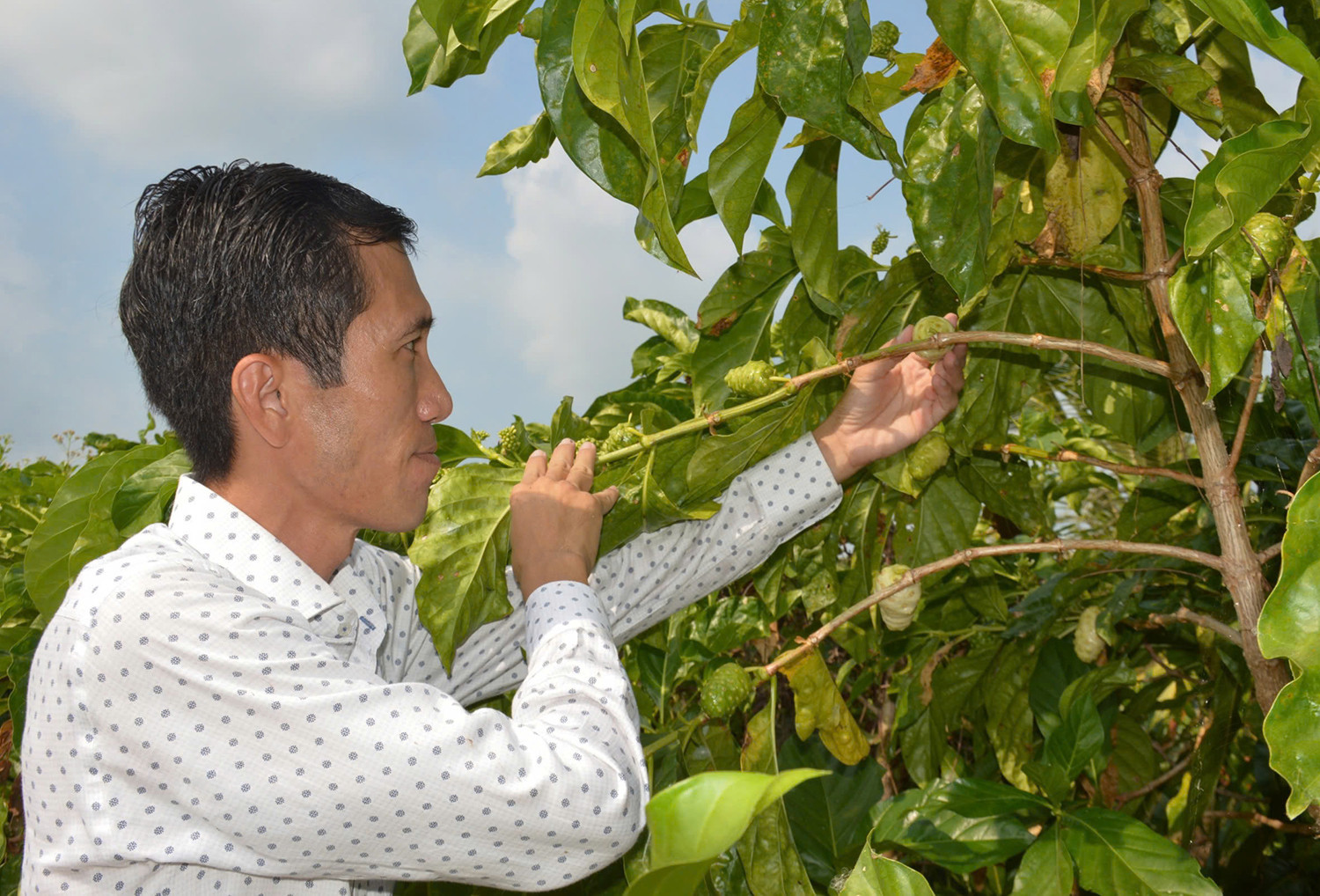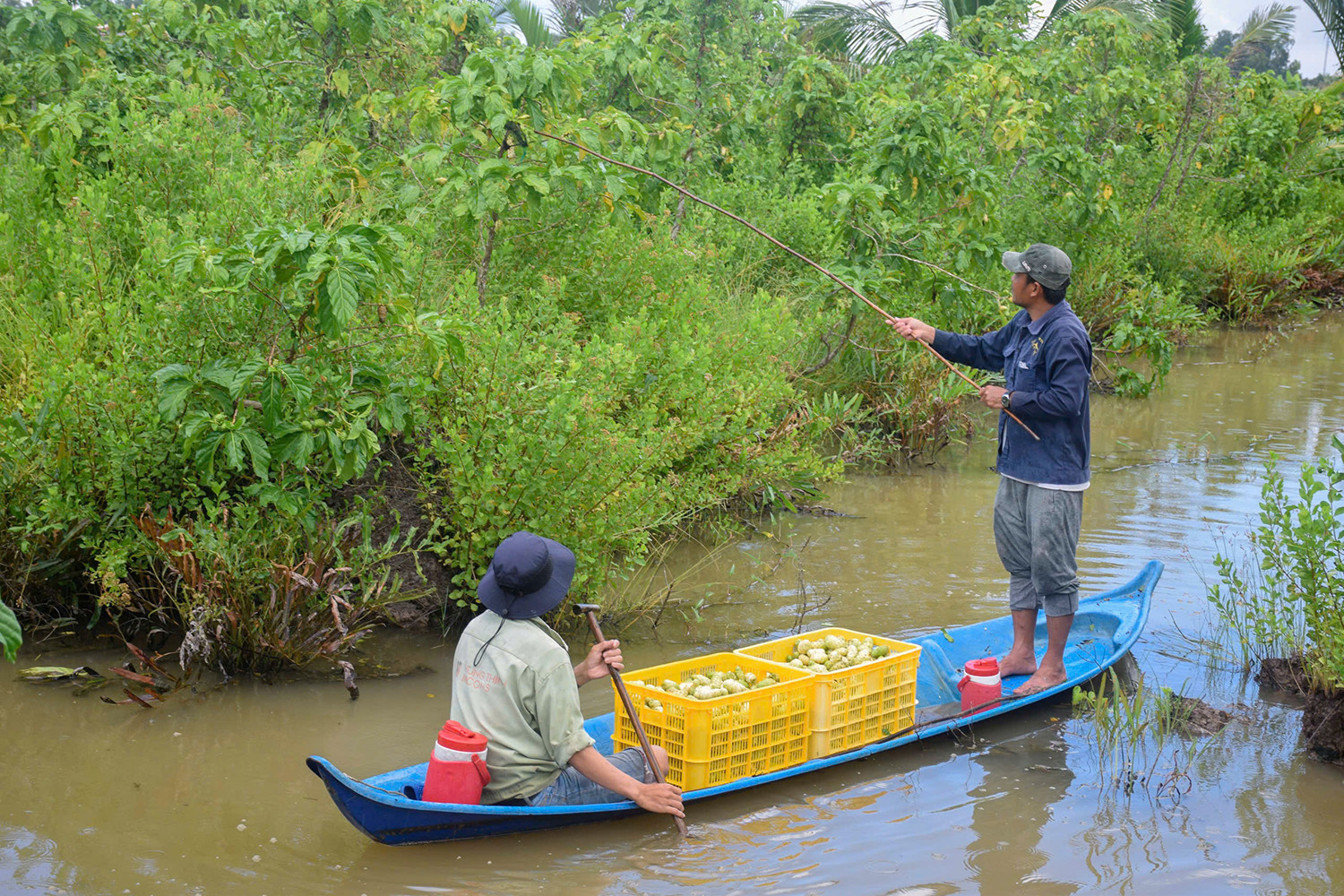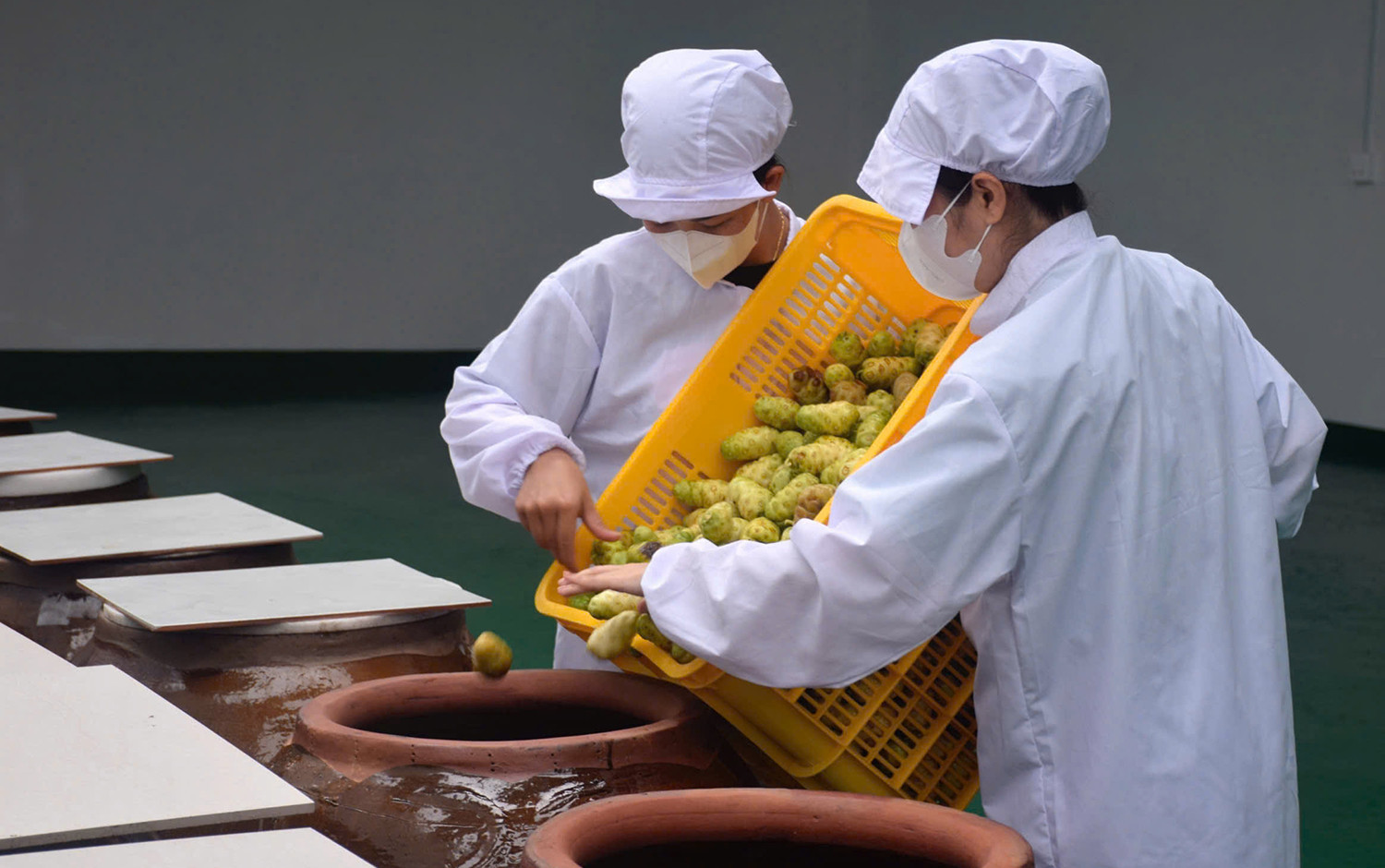Khuu Van Chuong, 45, left behind a stable, well-paying job in Ho Chi Minh City to return to his hometown in Ca Mau province and cultivate a once-wild fruit plant. Today, he earns more than 1 billion VND (over $40,000 USD) a year by harvesting noni fruit to extract its juice for health products.

A graduate in information technology, Chuong had spent years working in telecommunications in the city. But during frequent visits to his hometown of Loi An commune (Tran Van Thoi district, Ca Mau), he began to dream of a different path.
He recalled how the noni tree, once considered wild and growing naturally along canals and rivers, bore fruit year-round and required little care.
“During my travels, I noticed that not just in my hometown, but across many provinces in the Mekong Delta, noni fruit was vastly underutilized,” Chuong explained.
“Most people just soak it in liquor to treat body aches. A few gardens sold it raw to traders at low prices. So why not develop it into a health product with real value?”
A bold pivot with family opposition

In 2018, Chuong quit his telecom job and returned home. He invested nearly 700 million VND (about $28,000 USD) to convert 5 hectares of family shrimp ponds into a noni orchard with 15,000 trees. His decision sparked strong opposition from his family.
“They questioned why someone with a formal education would abandon urban life to return to farming. But I had a dream. After my father passed away, our land was left unmanaged, which gave me even more motivation to act,” he recalled.
After more than a year of care, the orchard stabilized and began producing fruit. Chuong also partnered with other farmers in Ca Mau, expanding noni cultivation to nearly 20 hectares. While waiting for a stable supply, he focused on perfecting the juice extraction process.
The greatest challenge, he said, was removing the fruit’s pungent odor while preserving its flavor and health benefits. After testing dozens of batches, Chuong finally developed a recipe he was satisfied with.
The harvested noni fruit is washed and ozone-treated, then fermented for one year before juice extraction. About 3 to 4 kilograms of fresh fruit yield one liter of pure noni juice.
Encouraged by positive feedback from family and friends who tried the product, Chuong established a company in 2020. He invested in machinery and production lines. His wife also quit her job in Ho Chi Minh City to join him in the business.
OCOP 4-star certification and national recognition

To expand his customer base, Chuong leveraged digital platforms, marketing his noni juice on e-commerce sites and at trade promotion events and fairs.
His noni juice now holds a 4-star OCOP (One Commune One Product) certification and is available in two variants - basic and premium - priced from 210,000 to 380,000 VND per bottle (375ml to 750ml), generating over 1 billion VND ($40,000 USD) in annual revenue.
Chuong believes the key to brand sustainability is delivering high-quality products. That’s why he places strong emphasis on developing organic cultivation zones and ensuring his production facilities meet quality standards.
Quach Van An, Deputy Director of the Ca Mau Department of Science and Technology, said the province has about 280,000 hectares of shrimp farms, of which 10% - around 27,000 hectares - are ideal for noni cultivation.
“Chuong is passionate and systematic in developing his raw material areas and brand. He not only creates jobs and promotes health for the community but also has ambitions for international exports,” An noted.
According to Dr. Phan Minh Duc of the University of Medicine and Pharmacy, Vietnam National University, Hanoi, noni fruit aids digestion, supports the gastrointestinal system, acts as a natural laxative, and helps treat constipation and smooth muscle spasms. It may also help reduce stomach acid reflux and prevent ulcers by regulating gastric secretions.
In addition, noni benefits heart health due to its rich nutrients, which improve blood circulation, prevent clotting, and reduce the risk of stroke. It can also help regulate blood sugar levels.
Known for fighting fatigue and enhancing physical endurance, noni juice contains compounds that improve cerebral blood flow, memory, and concentration.
Tran Tuyen